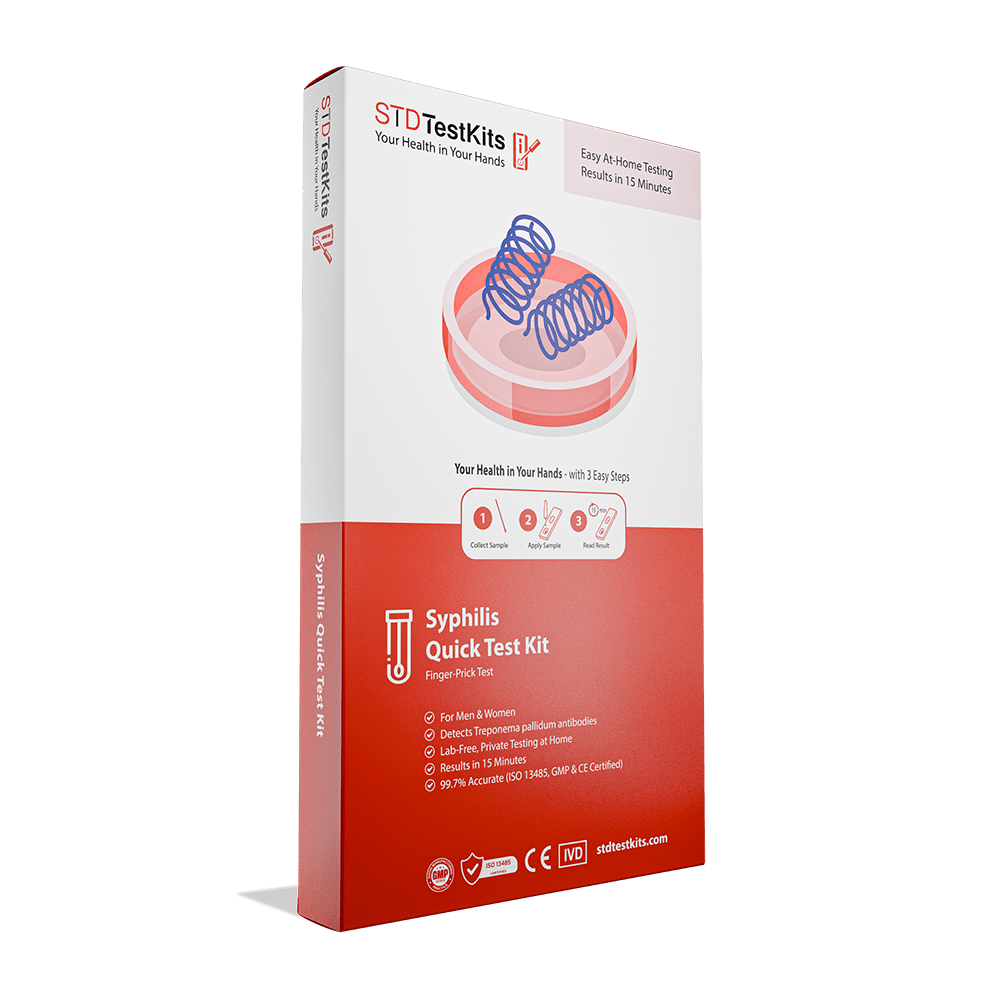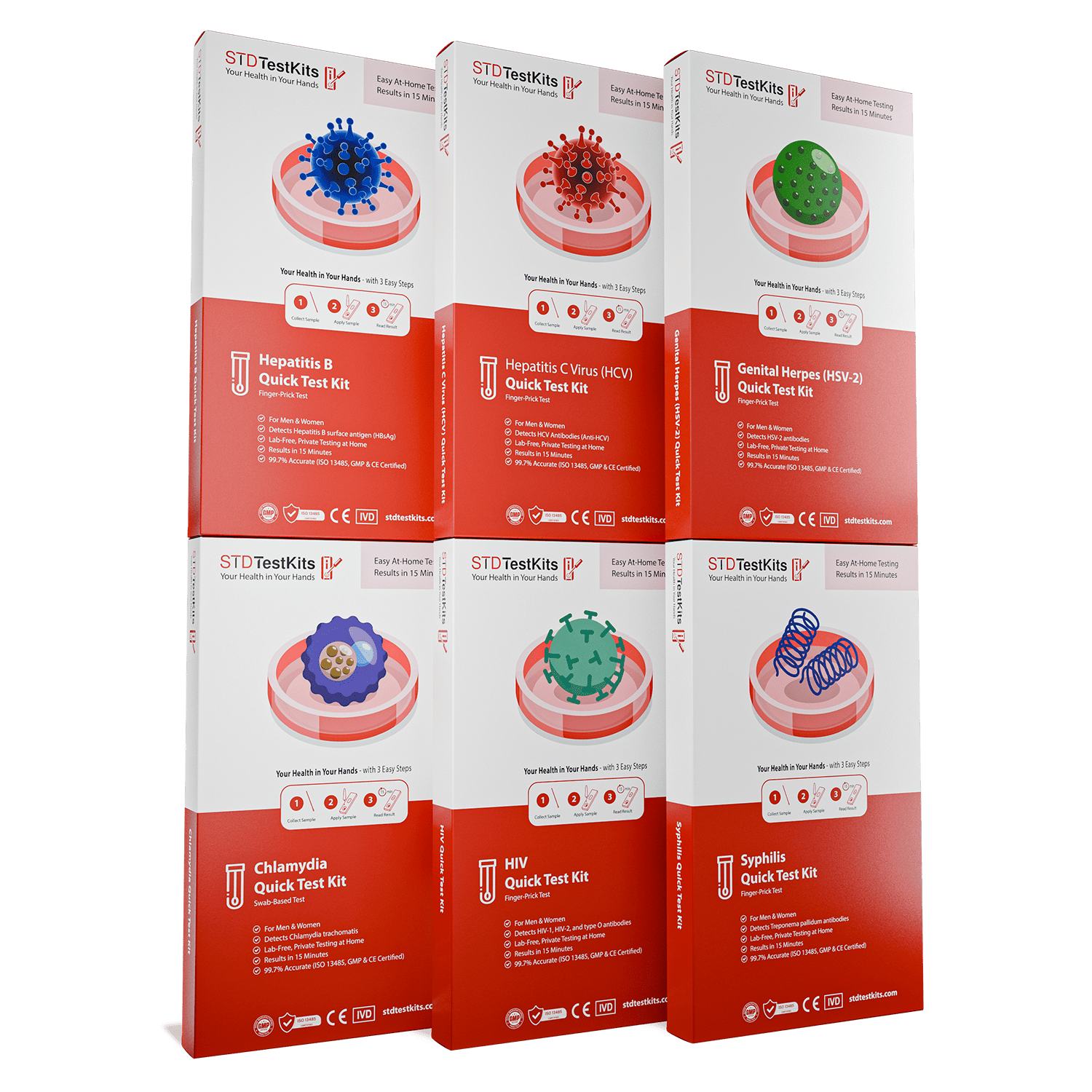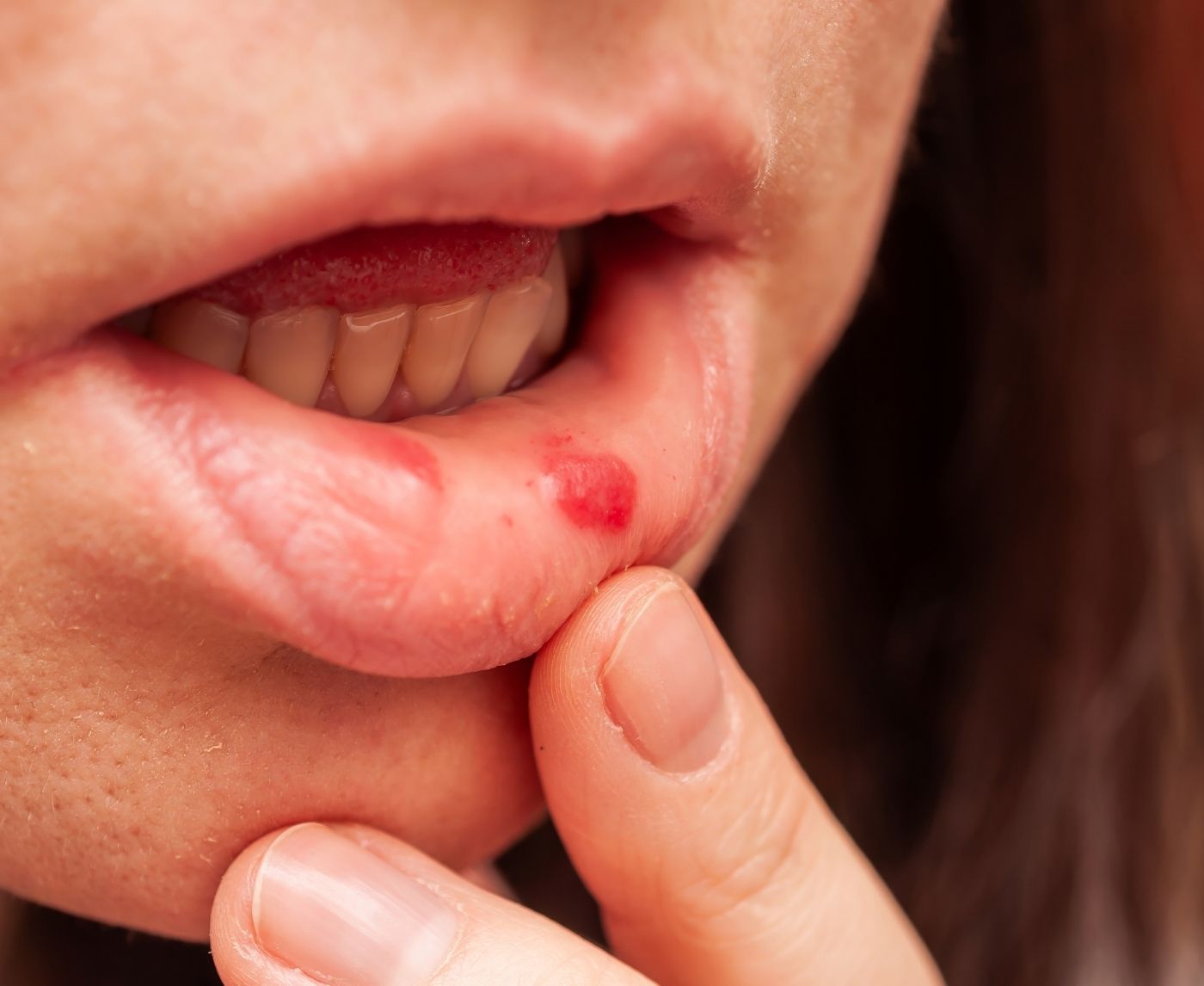Worried Your Cold Sore Is Actually Syphilis? Here’s How to Know
Quick Answer: Alabama ranks among the top five U.S. states for primary and secondary syphilis, with rates continuing to rise. Because syphilis can present with painless or hidden symptoms, early testing is critical, even if you feel fine.
Syphilis isn’t supposed to be making headlines in 2025. It’s not the flashy STD that gets social media clicks. But in Alabama, it’s back in a big way, and no, it’s not just happening to “certain people.” From college campuses to rural clinics, the same story is echoing across the state: symptoms get missed, shame gets in the way, and by the time people get tested, they’ve already unknowingly spread it.

People are also reading: Florida’s HIV Crisis by the Numbers: Who’s Most at Risk and Why It’s Rising
This Isn’t Just a Southern Thing, But Alabama’s in the Hot Seat
Let’s be clear: the rise in syphilis isn’t isolated to Alabama. But the numbers here are especially serious. According to 2023 data from the CDC, Alabama ranks fifth in the nation for primary and secondary syphilis rates, right behind South Dakota, New Mexico, Mississippi, and Arkansas. That means more than 28 people per 100,000 in Alabama are getting diagnosed with one of the most infectious stages of syphilis. And that’s just the people who get tested in time.
That stat might feel abstract until you zoom in. In Montgomery, a 23-year-old nursing student said she never would’ve gone to a clinic if her OB-GYN hadn’t flagged abnormal results during a routine Pap smear. “I didn’t have symptoms,” she said. “No discharge, no pain, nothing. I was just tired and stressed from school.” Her blood test came back positive for syphilis. And that moment flipped her whole view on sexual health.
“I always thought if I had something, I’d know.”
But that’s exactly the trap. Syphilis has a nasty way of going unnoticed. It can show up as a painless sore that disappears within a week or two. Then nothing, for months. Meanwhile, it’s busy burrowing deeper into the body. That’s why Alabama’s numbers matter. They’re not just stats. They’re warning signs that a quiet epidemic is growing while people stay silent or scared to test.
What Happens If You Miss the Signs?
Here’s the real danger: if syphilis isn’t caught early, it moves into secondary and tertiary stages. In the second stage, it can cause body rashes (sometimes on the palms or soles), swollen lymph nodes, or even flu-like symptoms. And if you still don’t catch it? Years later, syphilis can mess with your brain, heart, and nervous system. We’re talking about neurosyphilis, the kind that can cause blindness, dementia, or stroke-like symptoms.
That’s not fearmongering. That’s medical fact. And Alabama doctors are seeing it happen in real time. One Birmingham infectious disease specialist told reporters: “We’re treating complications of syphilis now that I hadn’t seen in over a decade. People are waiting too long. They’re afraid of the test, or don’t even think they need it.”
And while these late-stage complications aren’t common, the truth is, they’re almost always preventable. A single dose of penicillin can knock out early syphilis. But it can’t reverse the damage once it’s done. That’s why timing is everything, and silence can be dangerous.
Testing isn’t just about catching a disease. It’s about taking care of your body before it has a chance to betray you.
Alabama’s Congenital Syphilis Crisis: A Hidden Tragedy
Let’s talk about the babies. In 2019, Alabama reported 15 cases of congenital syphilis, when an infected mother passes syphilis to her baby during pregnancy. By 2022 and 2023, that number had jumped to 42. That’s not just a number. That’s 42 families dealing with tragic outcomes that were entirely preventable.
Congenital syphilis can cause miscarriage, stillbirth, premature birth, or lifelong health issues in infants. And here’s the heartbreaking part: most of these mothers had some prenatal care. But the testing was either too late, or treatment didn’t happen fast enough. In many cases, providers assumed low risk because the patients were in monogamous relationships or “didn’t look like someone who’d have an STD.” That’s not just medical bias, it’s a death sentence for babies who never had a chance.
One mobile midwife in Selma shared anonymously:
“We’re not just seeing these cases in young women with multiple partners. We’re seeing married women, churchgoing women, women with one partner. And still, no one’s talking about syphilis until it’s too late.”
If you're pregnant or thinking about it, even if you trust your partner, you need to get tested for syphilis early and often. It’s not about blame. It’s about protection, plain and simple.
When Testing Feels Harder Than the Risk
Let’s be honest, getting tested for an STD like syphilis doesn’t always feel simple. For a lot of people in Alabama, especially in smaller towns, walking into a clinic feels like inviting gossip. “You go in for testing, and people start whispering,” said Ty, a 29-year-old from Dothan. “I had to drive two counties over just to feel safe.” Ty’s story isn’t unusual. Fear of judgment, especially in conservative or tight-knit communities, can be a massive barrier to care.
But here’s the hard truth: waiting for symptoms is not the same as being safe. By the time many people feel “sick,” syphilis has already advanced. That’s why more folks are turning to at-home STD test kits, private, fast, and easy to use without the shame spiral. It’s the peace of mind you don’t have to explain to anyone.
And if you think syphilis only affects certain groups, think again. Yes, men who have sex with men (MSM) have higher infection rates, but Alabama is also seeing spikes among heterosexuals and women. It’s no longer about identity or orientation. It’s about contact, protection, and timing. Anyone can get syphilis. Anyone can miss the signs.
Real Talk: The Emotional Side of an STD Diagnosis
If you’ve ever had to wait for test results, you know the emotional math. One mistake, one moment, one partner, and suddenly you’re spiraling. Guilt, shame, fear, maybe even anger. The mental load is real, and for many people in Alabama, it gets multiplied by cultural silence around sex and health.
When Keira, 25, got her diagnosis, her first reaction wasn’t medical. “I thought I was ruined. Like, no one would want to sleep with me ever again. I wasn’t thinking about penicillin. I was thinking about being dirty.” But after a single antibiotic injection and a long talk with her nurse, Keira’s outlook shifted.
“She told me, ‘You’re not your diagnosis. You’re someone who cared enough to get answers.’ That changed everything.”
There’s something powerful about facing fear with facts. Syphilis is treatable. Testing is confidential. And getting tested doesn’t mean you’re reckless, it means you’re responsible.
And no, you don’t have to tell your ex. But if you care about your future partners, or your peace of mind, you owe yourself the truth. And maybe, just maybe, some healing that goes deeper than antibiotics.
Why Syphilis Hides, and How It Spreads Without You Knowing
One of the most dangerous myths about syphilis is that you’ll “just know” if you have it. But most people don’t. The first symptom is usually a chancre, a painless sore at the point of contact, often around the genitals, anus, or mouth. It doesn’t hurt, it heals fast, and it can be so small that people mistake it for a pimple, ingrown hair, or cut. No burning. No bleeding. Just... gone.
That’s when syphilis gets tricky. Even after the sore vanishes, the bacteria stay in the body. Weeks or months later, people may develop rashes, fatigue, or swollen glands. But many write it off as allergies, stress, or the flu. The real kicker? You’re still contagious during this time.
That’s how someone like Marcus, who thought he was fine, could sleep with three more partners before getting diagnosed. By the time he saw a weird rash on his arms, he was already in secondary syphilis. “I had no clue I was spreading it,” he said. “If someone hadn’t told me to test, I never would’ve gone in.”
This is how outbreaks grow: in the space between silence and symptoms. And Alabama’s high ranking shows what happens when testing becomes the last resort instead of the first step.

People are also reading: Why Syphilis Is Spiking Among Straight Men, and Why It Matters
But I Always Use Protection, So I’m Safe, Right?
Not exactly. Condoms reduce your risk, but syphilis is a little more slippery. It spreads through skin-to-skin contact, not just bodily fluids. That means oral sex, rimming, and even rubbing against an infected area can transmit it. If the sore is somewhere a condom doesn’t cover, the risk is still there.
That doesn’t mean protection doesn’t matter, it does. But it’s not a guarantee. And if you’re only testing when you think something went “wrong,” you’re already behind. Testing should be routine, not reactive. Like brushing your teeth. Like changing your oil. Like getting a Pap smear or STI panel every few months if you’re sexually active with more than one partner, or even if you’re not sure about your partner’s history.
Think of it this way: you can’t protect yourself from what you don’t know. And syphilis doesn’t care how “safe” you feel. It only cares that you haven’t checked.
Why This Is Bigger Than Just “Getting Checked”
If you’re reading this at 2AM, nervously Googling that weird spot you found, you’re not alone. That late-night spiral is a ritual for thousands of people, especially in Alabama, where access and stigma collide to make sexual health a guessing game. What’s worse is how often people convince themselves to wait. “If it doesn’t hurt, it can’t be serious,” they think. Or, “It’s probably just stress.” But here’s what no one tells you: early syphilis rarely hurts. That’s the problem. It’s quiet. And by the time it’s loud, it’s deep.
Getting tested isn’t just about finding out what’s wrong. It’s about making the noise stop. The mental noise. The what-ifs. The late-night symptom searches. The shame that builds in the silence. That noise is heavy. And testing is how you put it down.
In Alabama, where clinics are sometimes miles away or hard to reach, that noise can get deafening. But now, with FDA-approved at-home syphilis tests, the process is as easy as swabbing, sealing, and mailing, without ever having to explain yourself to a stranger. No appointments. No waiting room stares. Just answers, privately.
Peace of mind doesn’t have to be earned through panic. It’s available now. Quietly. Compassionately. Just a test away.
Still Not Sure If It’s “Worth It” to Test?
Here’s a question no one asks out loud: “What if I test, and it ruins everything?” It’s a real fear. But let’s flip it. What if you don’t test, and it spreads? Or gets worse? Or turns into something your body can’t bounce back from? Syphilis is 100% treatable, if you catch it early. That’s the part you control. The only thing testing can ruin is the illusion that everything’s fine when it’s not.
You don’t have to be brave to test. You just have to be curious. You don’t even have to be scared. You can just be proactive. And you don’t have to know how to tell your partner, or what your next move will be. You just have to decide: Do I want to know?
Because knowing gives you power. It puts the wheel back in your hands. It’s how you stop spiraling and start healing. And if the test is negative? You get the kind of confidence you can’t fake. If it’s positive? You get a plan. Either way, you win.
This is about your body, your sex life, your peace of mind, not anyone else’s opinion.
“But What If They Judge Me?”
They might. Let’s not lie about that. Some people will flinch at the word syphilis. They’ll make assumptions. Maybe they’ll gossip. Maybe they won’t understand. But you don’t owe anyone your silence to protect their ignorance. Testing isn’t dirty. What’s dirty is letting stigma keep you sick, or worse, keep you silent while others stay at risk.
If someone hears “syphilis” and thinks “reckless,” that says more about their sex education than it does about you. If they back away when you disclose, that’s not rejection. That’s a filter. You deserve people who respect your honesty, not punish it.
Testing isn’t just an act of health, it’s an act of power. It says, “I give a damn about myself.” And in Alabama, where access is tough and conversations are tougher, that power matters even more.
Testing says you’re not afraid to take care of yourself, even if it’s uncomfortable. That’s not shameful. That’s heroic.
If You’ve Been There, You Know
If you’ve ever stared at a sore and whispered, “Please just go away,” you know the fear. If you’ve ever Googled your symptoms in secret, switched tabs when someone walked by, promised yourself you’d call a clinic next week, you know the shame. If you’ve ever stayed in a situationship because asking about testing felt too awkward, you know the risk.
You’re not reckless. You’re human. And you deserve clarity, even if the truth feels scary. You deserve to sleep without wondering. You deserve to be touched without fear. You deserve to know what’s happening in your body, not guess. And the people you sleep with? They deserve the same.
We don’t always get to control how we learned these lessons. But we get to choose what we do with them.

People are also reading: Not Just a Scare: Why HIV Testing After Anal Sex Could Save Your Life
FAQs
1. I found a bump, but it doesn’t hurt. Should I be worried?
Look, pain isn’t always part of the story. A syphilis sore, called a chancre, is usually painless and disappears on its own in a week or two. That’s exactly why people miss it. If it showed up, then vanished like a bad Tinder date, that’s still a reason to test.
2. How the hell is syphilis still a thing in 2025?
Great question. The short answer? Less testing, more hookup culture, and a serious lack of comprehensive sex ed. Add stigma and funding cuts, and boom, syphilis is back from the dead. Alabama's especially hard-hit, but the trend is national.
3. Can I get syphilis from oral?
Yes. Mouth-to-genital, mouth-to-anal, even kissing if someone has a sore. Syphilis doesn’t need fluids, it just needs skin contact. Condoms and dental dams help, but they don’t cover everything. If your mouth's doing the work, your risk goes up.
4. I’m pregnant. Do I really need to test for syphilis?
Yes, yes, 1000% yes. Syphilis can pass to your baby, and we’re seeing heartbreaking outcomes from missed cases. Even if you’re in a monogamous relationship, test early and again later. This isn’t about trust. It’s about safety.
5. Do I have to tell past partners if I test positive?
It’s a personal call, but medically? Yeah, it’s the right thing to do. Most health departments will even help you notify anonymously. You’re not “ruining” anyone’s life. You’re giving them a chance to stay healthy. That’s love, not shame.
6. Does a negative test mean I’m totally in the clear?
Depends on timing. If you test too soon after exposure (like within a week), it might not show up yet. For the most accurate results, test 3–6 weeks after a risky encounter. And if you’re still unsure, test again. Syphilis loves a sneak attack.
7. I got treated before. Can I get syphilis again?
Unfortunately, yes. Treatment clears the infection, but it doesn’t make you immune. Think of it like the flu, you beat it once, but you still need to stay alert. That’s why regular testing matters, especially if you’re dating or exploring.
8. How long does it take to treat?
Early syphilis? One penicillin shot, done. Later stages might take more doses or follow-ups. But compared to the long-term damage syphilis can cause? It’s a small price for big peace of mind.
9. Is at-home testing legit?
Yes, if it’s from a trusted provider. STD Test Kits is FDA-approved and ships discreetly. You test at home, send it back, and get secure results. No awkward waiting room, no side-eye.
10. What if I just wait and see?
You could. But syphilis doesn’t wait for you to feel ready. It’ll keep doing damage silently. Early testing = easy treatment. Delayed testing = bigger risk, more complications, and possibly hurting someone else. Waiting rarely makes things better.
You’ve Waited Long Enough
If you’ve made it this far, it’s not just curiosity, you’re probably worried. Maybe it’s something you saw, something you did, or someone you trusted who now isn’t texting back. Whatever the reason, this moment right here? It’s your fork in the road.
You can keep guessing, googling, spiraling, or you can make one clear, quiet decision to find out. No clinic drama. No moral panic. Just facts. Just care. Just you, taking your health seriously for once, not because you're scared, but because you're smart.
Sources
2. CDC: 2023 STI Surveillance Report PDF
3. CDC: Congenital Syphilis State Ranking (2023)
4. Alabama Public Health: Syphilis Prevention Page
5. Alabama Board of Medical Examiners: Syphilis Prevention Strategies







